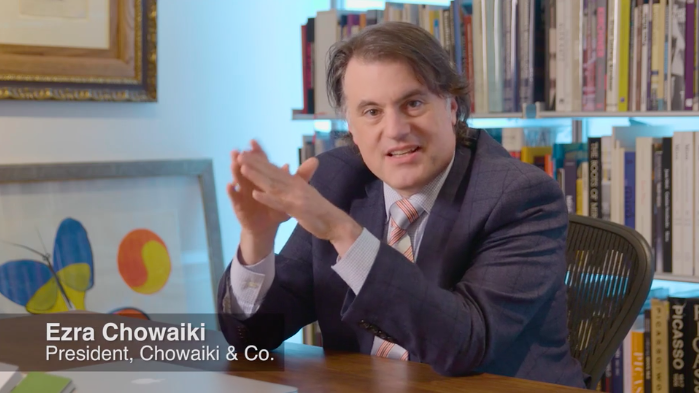-
Grossman LLP Wins Summary Judgment In Dispute Over Chagall Painting Caught Up In Chowaiki Scandal
05/09/2022
 In a major win, Grossman LLP has obtained summary judgment for our client in a long-running title dispute involving a Marc Chagall painting that was part of the fraudulent schemes of disgraced art dealer Ezra Chowaiki.
In a major win, Grossman LLP has obtained summary judgment for our client in a long-running title dispute involving a Marc Chagall painting that was part of the fraudulent schemes of disgraced art dealer Ezra Chowaiki.
More than four years ago, Chowaiki was accused of cheating numerous clients in fraudulent art deals. In the fall of 2018, Chowaiki pleaded guilty to federal charges in connection with the scandal, leaving his numerous victims to assert their competing title claims to artworks as part of the federal bankruptcy proceedings involving Chowaiki’s eponymous gallery, as well as in federal criminal-forfeiture proceedings in connection with Chowaiki’s guilty plea.
Grossman LLP was retained by a number of these claimants, including one who had purchased a painting by Marc Chagall through Chowaiki for $1.2 million (though the actual sale price paid to the owner was $900,000—Chowaiki stole the difference). After fraudulently inducing the initial sale, Chowaiki, through a web of lies, convinced our client to consign it back to Chowaiki, who then unlawfully purported to pledge it as collateral on a loan to his gallery. Eventually, Chowaiki purported to sell shares of the work to a group of London galleries without informing or paying our client. At the same time, the FBI listed the Chagall publicly in its National Stolen Art Database—where it remains listed as stolen today.
We asserted our client’s title claims in the bankruptcy and criminal-forfeiture proceedings and ultimately obtained an order declaring that “the United States recognizes Petitioner[s]’s superior right, title and interest in the [Chagall],” and directing the United States to return the Painting to our client if the government comes into possession of the work. In early 2019, after the London galleries refused to the return the Chagall notwithstanding this Order, we initiated another round of litigation in state court seeking the return of the painting.
The State Court complaint alleged that the galleries were not good-faith purchasers of the Chagall because they had expressed but failed to act on their own serious suspicions about Chowaiki’s honesty, and had disregarded multiple red flags indicating that Chowaiki was dealing with the work improperly. But even putting those red flags aside, we argued that the London galleries had received notice of, but refused to participate in the bankruptcy and forfeiture proceedings, and therefore they were barred from asserting defenses to our client’s title claim years after those proceedings had concluded. The defendants first tried to dismiss the complaint on multiple theories—including a challenge to the sufficiency of the pleadings and the court’s personal jurisdiction—but we succeeded in defeating those attempts in the trial court, and after oral argument the First Department affirmed. (See our previous blog post here for the details.)
We then moved for summary judgment on the grounds that the London galleries had essentially forfeited any claim to the Chagall when they failed to timely assert claims their claims in the federal bankruptcy and criminal-forfeiture proceedings. And this spring, the State Court agreed: “The defendants cannot, in my view, contest plaintiff’s title to the artwork in this case . . . [T]hose rights were adjudicated fully in the Federal case . . . and preclude defendant[s’] arguments in this case.”
In recent years, Grossman LLP has represented numerous victims of major art frauds, including the schemes perpetrated by Chowaiki and Inigo Philbrick. As with similar frauds before theirs, they constructed convoluted schemes, including selling the same work (or shares of the same work) to multiple buyers; pledging artwork they did not own as collateral for their own debts; and lying to clients and counterparties about basic facts underlying high-priced art deals. This case is another unfortunate reminder that when a fraudster’s house of cards falls, there are often multiple parties asserting claims to the same unique work of art.
Art Law Blog
